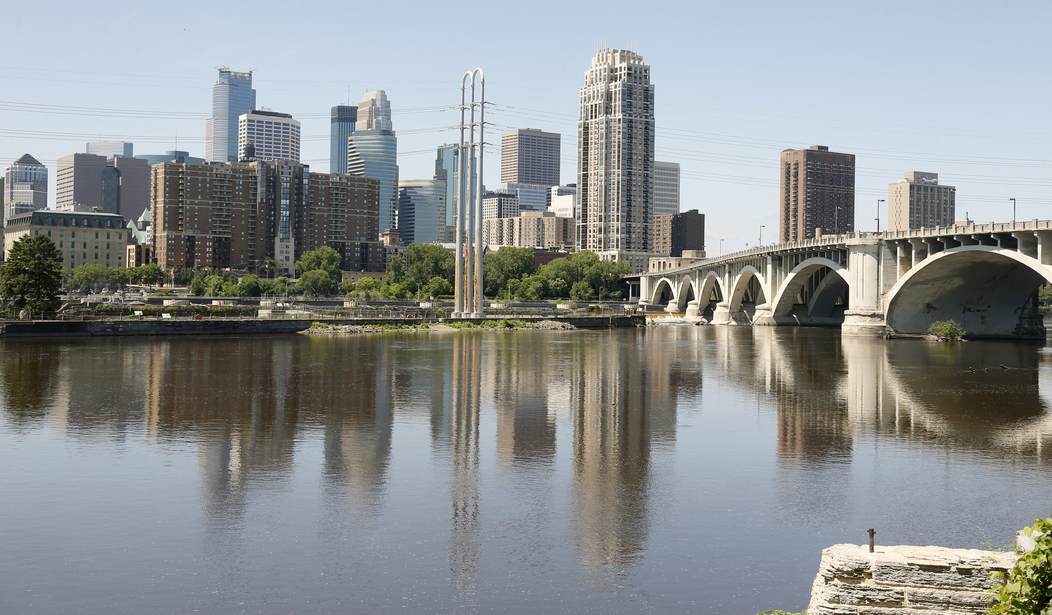Science is never "settled." That is, unless you're a climate scold, trying to convince the world to adopt a 19th-century lifestyle in exchange for preventing a one-degree increase in average temperatures.
The scientific method, of course, doesn't work that way. It's not about "settled" anything. Scientific inquiry is always tentative, always subject to re-interpretation of new data. If new data doesn't fit the hypothesis, you change the hypothesis; you don't go looking for other, more compliant data.
Case in point: "Carbon budgeting." The more we learn about the data used in these attempts, the more we learn that a lot of it is just wrong. A recent study shows that over half of the CO2 emitted from rivers comes not from human activity, but from ancient sources over which we have no control. As is so often the case, Watts Up With That's Charles Rotter has details:
The recent Nature study titled “Old carbon routed from land to the atmosphere by global river systems” is not only a rigorous piece of scientific work—it’s also a spectacular indictment of the so-called “settled science” of climate change. This 2025 paper is a flaming arrow into the heart of carbon cycle certainty, unearthing yet another inconvenient truth: over half of the CO2 emitted from rivers comes from carbon sources that are hundreds to thousands of years old—not from recent fossil fuel emissions or current biological activity.
Let that sink in. Climate models and carbon budgets, paraded as settled science by every bureaucrat, green politician, and eco-apocalyptic influencer on Earth, have been built on the foundational assumption that riverine CO2 is part of a contemporary, short-term biosphere loop. Turns out, they’ve been routing old ghosts through a new story.
Old ghosts, indeed, but the left has shown an astounding capacity of using old ghosts, new ghosts, or anything else they can conjure up to make the case for winding back our modern, technological lifestyle. In this case, the Nature study knocks a big claim of the climate scolds into a cocked hat:
The entire idea of a “carbon budget” depends on the assumption that we can accurately track all natural and anthropogenic carbon sources and sinks. The paper’s authors explicitly state:
“This previously unrecognized release…equates to 1.2 ± 0.3 Pg C yr⁻¹, similar in magnitude to terrestrial net ecosystem exchange”.
Translation: We were missing a carbon leak as big as the net carbon uptake of all land-based ecosystems. That’s like losing a financial ledger entry equivalent to your annual revenue and still claiming your books balance.
In other words, a source of atmospheric CO2 on a global scale has been badly misunderstood, if this study is correct. The climate scolds claimed that most carbon emissions are from human sources, but this study presents a global system that not only produces CO2, but over half of that CO2 comes from ancient sources that predate the Industrial Revolution.
That's kind of a big deal.
See Also: How Net Zero Is Collapsing, and Why That's a Good Thing
Liberal Seattle Paper Cries About Climate Change Causing Flooding. They're Wrong.
The study also casts serious doubt on all the sources of atmospheric carbon from river systems:
The authors admit they don’t know whether the increase in old carbon emissions is from natural variability or anthropogenic disturbance. In their own words:
“Whether or not anthropogenic perturbation has increased the leak of old carbon…remains a notable knowledge gap”.
Yet we’re told with absolute certainty that the Earth will warm by 1.5°C unless we ban gas stoves, eat bugs, and shut down reliable energy. This study exposes just how deeply uncertain and unresolved the feedbacks in the carbon cycle remain.
Ay, there's the rub. The climate scolds - including the likes of John Kerry, who jet-sets around the planet in a private jet to lecture the rest of us about our carbon footprints - keep advocating for the same things. No gas stoves, no steaks, no reliable, high-density energy; no nuclear power plants (that one is truly baffling), and no internal-combustion engines. It is belaboring the obvious to note that this would make the chosen lifestyles of many people difficult or impossible, but the scolds don't care about that.
That's because it's not about the climate. It's about control. Free people are hard to control. People held captive in the dome of a 15-minute city are much easier to keep under one's thumb.
To call climate science “settled” in the wake of this paper is not just intellectually lazy—it’s laughable. It’s the scientific equivalent of declaring victory halfway through a chess match while ignoring that your queen is missing and half your pawns are spies. The river CO2 study is not a minor correction. It’s a flashing red light that we’re still flying blind.
As I've written and said for years, the Earth's systems are vast beyond our imagining. We not only don't understand them very well, but it's questionable whether we can understand them very well. Of late, it seems like every study, every piece of actual scientific inquiry, leads not toward more human involvement in carbon output, but less. And the models we cook up are laughably crude when compared against the actual climate on the planetary scale.
The scolds are welcome to keep spouting their Chicken Little-style hysterics. Actual scientific inquiry, more and more, is proving their panic unfounded. And that's a good thing.















